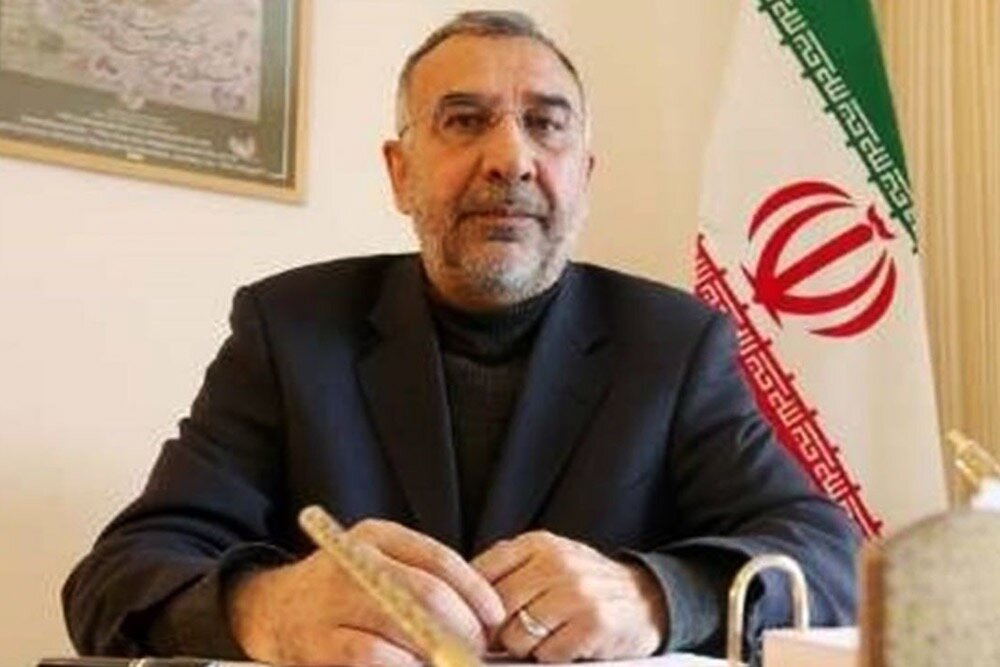Iran’s Afghanistan envoy meets German counterpart

TEHRAN - Iran’s special envoy for Afghanistan Mohammad Ali Taherian held talks on Sunday with his German counterpart Jasper Wieck over the latest political and security developments in war-torn Afghanistan, according to a statement by the Iranian foreign ministry.
Taherian underlined the need for all sides to stick by a political solution to the Afghanistan conflict and make efforts to form an inclusive and pluralistic government as the only option for ending war and violence there.
Jasper Wieck supported the approach and called for continued consultations and cooperation between Iran and Germany to establish lasting peace and stability with the participation of all ethnic groups and factions in Afghanistan.
The meeting came amid an ongoing U.S.-led evacuation mission in Afghanistan that led to evacuating more than 100,000 U.S. and Afghan citizens from Kabul’s airport. On Monday night, the U.S. announced the end of its 20-year military mission in Afghanistan.
The Taliban also confirmed the complete U.S. withdrawal from Afghanistan, celebrating the end of U.S. occupation.
Iranian Foreign Ministry spokesman Saeed Khatibzadeh said on Monday that Iran seeks the establishment of an “inclusive” government in Afghanistan, and is ready to facilitate intra-Afghan talks.
Speaking at his weekly press briefing, he added that what the Leader of the Islamic Revolution said about Afghanistan has been Iran's firm policy on the country over the past 40 years.
In his recent speech during a meeting with new president Ebrahim Raisi and his cabinet team, Ayatollah Seyed Ali Khamenei touched on the Afghanistan issue and outlined the contours of Iran’s position on the war-torn country.
“Behind the scenes of U.S. foreign policy there lies a predatory wolf that sometimes changes into a cunning fox. Today’s situation in Afghanistan is an example of this,” he said.
Explaining the current situation in Afghanistan, the Leader of the Islamic Revolution stated, “Afghanistan is our brother country, with the same language, religion and culture. The source of all the crises in Afghanistan is the U.S. The U.S. committed all sorts of atrocities during their 20-year occupation of that country. These ranged from bombing wedding and mourning ceremonies, to imprisoning individuals, and included increasing the production of addictive drugs by tens of times. They did not take a single step for the development of Afghanistan.”
Explaining the position of the Islamic Republic on Afghanistan, Ayatollah Khamenei said, “We support the Afghan nation. Governments come and go. It is the Afghan nation that will remain. The nature of our relations with other governments depends on the nature of their relations with us. May God bring the best situation for the nation of Afghanistan.”
Khatibzadeh reiterated this policy. “We have always stood by the people of Afghanistan and our priority has been to ensure peace, stability and progress in Afghanistan. Afghanistan is our dear neighbor. It is in our realm of civilization, and a statement I read at the ministry last week emphasized that the lives, honor, and properties of the Afghan people must be respected by all groups in the country. What we think will bring peace and stability to Afghanistan is the formation of an inclusive government in this country that reflects the ethnic and demographic composition of Afghanistan,” he noted.
Khatibzadeh added, “In this regard, the responsibility of the future government of Afghanistan will help fulfill their definite obligations, and we are waiting to see the formation of an inclusive government and the commitment of that government to fulfill its responsibilities, and based on that, Iran and the international community will make their decisions.”
The spokesman said that what Iran seeks is that Afghans decide for their future.
“What is clear from the statement issued by the Ministry of Foreign Affairs, which I have read before, is that we seek the people of Afghanistan to decide their own destiny, and no force outside Afghanistan can decide for the people of Afghanistan and their future. Afghanistan should be allowed to create an inclusive government in the country by facilitating inter-Afghan dialogue, not a minority government against the majority or a government with only one group, but a government that reflects the demographic and ethnic composition of Afghanistan,” he elaborated.
Khatibzadeh said that the Taliban, as a group, is part of Afghanistan and part of the future of the country.
“We have announced ourselves to hold the second round of inter-Afghan talks in Tehran. Of course, this depends on the fact that all groups can participate in it,” he added.
Large numbers of Afghans are trying to flee their country fearing a renewed new civil war as the Taliban took over the capital Kabul on August 16. However, Taliban has sought to allay concerns and promised to establish a comprehensive government.
The Deputy Commander of Iranian Police Border Guard Jalal Setareh said on Sunday that every day an average of 2,000 Afghan nationals are requesting to enter Iran from the borders.
The top police official said Afghan immigrants are treated with respect and dignity and are often returned to their home country.
“There are no special problems on the eastern borders. However, a number of oppressed Afghan people go to the eastern borders to enter the Islamic Republic of Iran which they are treated with the utmost respect and dignity,” he stated.
The police official aded, “We share the pain and suffering of the Afghan people and sympathize with them…. Afghans are asked not to go to the borders and stay in their own country, so that, their problems will be solved.”
Leave a Comment